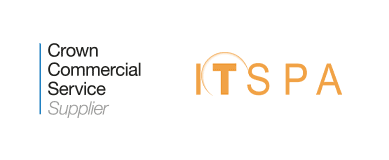BT will be 'sunsetting' its ISDN services by 2025 and completing its move to SIP VoIP technology, so thousands of organisations that currently use ISDN telephone systems in the UK will need a replacement system. Add to this the need for flexible working, post-Brexit data protection issues and a new desire for video conferencing and it becomes slightly harder than you would imagine. To help you navigate through the market here is a list of what we think you need to know before making a decision:
1. Cloud vs premise based
With ISDN systems effectively off the table, you have two options, premises-based and cloud services. Both will support SIP however the cloud service will already come with as many lines as you require. A premises system will need to be connected to a SIP trunk service and lines are charged at around £5 per month excluding call charges. Premises systems don't always make allowances for home working and if there are many offices to cater for, a PBX in each office can become expensive. Cloud systems tend to use large hosting services like AWS and MS Azure which lead the way in reliability and security. Finally, a premises system is usually limited by its server resource (CPU, RAM, Disk) and it can be outgrown quickly, cloud systems don't restrict in this way.
2. UK data protection
Most cloud systems these days are based in the USA which means that personal data, such as a phone number, name, email and address details are stored or routed to that region. The problem is that these cloud providers are not bound by GDPR or UK GDPR regulations which means in the event of a serious data breach, it will be up to you to organise remedial action, the USA government will not intervene, and the UK will be outside of the jurisdiction. If you are looking to resell USA cloud services into the UK market you could be putting your business at risk without the correct groundwork being done. Whilst the number of service providers is more limited a UK-based one that ensures UK GDPR compliance will be the least risky for you.
3. Security
End to end confidentiality is achievable with the correct technology in place. The premises or cloud service needs to provide encryption in transit and at rest which makes it impossible for anyone to intercept and listen to voice or video calls and in the case of chat and emails, view them. TLS 1.2 is the current standard for encryption in transit and disk encryption uses the industry-standard AES-256 algorithm (AWS/Azure servers use this). If the unified communications service provider can provide this, you can be assured that your communications interactions will be strictly confidential. If you intend to take payments over the phone in the UK, you will need to be PCI DSS compliant, or choose a telephone system that has the functionality to descope your organisation from PCI DSS compliance obligations.
4. WebRTC
Web real-time communication (WebRTC) is functionality that is built into all web browsers, and this means that you can conduct voice, video and chat sessions from Chrome, Firefox, Safari and MS Edge without having to install plugins, extensions or applications. There are other advantages such as security, all calls use TLS to encrypt the sensitive signalling data and have the option the encrypt media with SRTP. Contact centres like WebRTC because their agents don't need to download or install anything, they simply log in and can then make/take calls. This is a huge advantage if the agents are based abroad or work from home. WebRTC works from browser to browser directly, the media stream does not need to route through various servers across the globe to get to its target. This lack of 'hops' reduces latency and dropped packets which means the call is generally higher quality.
5. Hosting facility
It is widely accepted in 2022 that the de facto standard for data hosting is Amazon AWS or MS Azure. In AWS' case, they have been operating for 15 years since 2006 and have the most experience and best technology. We would consider any unified communications service provider that works with AWS to be more reliable and flexible. The number of outages affecting crucial services such as S3 and EC2 in the UK in the last 8 years is zero. AWS and Azure also provide hundreds of complimentary services such as machine learning and AI data services, security, backup and storage from their easy-to-understand web consoles. The hosting facility defines the service, and it must be close to 100% reliable so this is one of the most important issues.
6. Media storage
If you need to store voice recordings for long periods, you are going to need lots of disk space especially if you need 7 years’ worth, fully backed up. High-quality voice is recorded at 50-60Kbps which means a 20-minute call will need around 75Mb of storage. Multiply this out per member of staff and then double or triple it for backup and you could have an out-of-control expense very quickly. The costs of storage are generally reducing though but there is an often-overlooked issue, how to move large chunks of media around. If you have 200Gb on a local server that has maxed out, you may not be able to move it somewhere else easily. Broadband services generally have high download bandwidth quotas but comparatively low upload ones. So, moving 200Gb at 5mps will take 12 hours if the broadband connection is not being used by anything else and assuming the process can be automated and doesn't need a person to intervene. These issues tend to be better addressed
7. Do I need a UC system, PBX or contact centre, or all three?
Most organisations need elements of all three. They can be acquired separately, and some options incorporate basic features from the other categories, but it is rare to find a fully comprehensive service. As an example, Microsoft Teams meets the needs of most organisations but lacks advanced contact centre functionality and flexibility in certain areas such as support for 3rd party SIP trunks. Amazon Connect is a very capable contact centre but doesn't currently support physical SIP handsets and lacks a few other crucial PBX features. Acquiring multiple support contracts for a communications system can slow or even prevent problem resolutions so the fewer parties involved the better. A comprehensive solution that includes UC, PBX and contact centre features from the same provider should be high up on your wish list.
8. Contract term
The length of the contract, or term, can vary from rolling monthly to yearly and sometimes a service provider will try to push for a 5-year term. It probably isn't worth porting your numbers, retraining, and committing lots of time to configure the new system only to opt for a rolling monthly contract but we would suggest not committing to more than 1 year. The general trend for pricing is downwards as communications become more anymore of a commodity to it isn't necessary to commit to a multi-year contract and you may even lose out long term.
9. MS Teams integration
Microsoft dominates email with its Outlook 365 service and together with Slack, they dominate the business messaging market. So, it may be wise to choose market leaders for each of the various communications systems such as telephony, messaging, video and email. One of the most popular options and one that we would support is a single provider for email, chat, collaboration and then another for PBX features. Microsoft Teams is a good option because you can integrate with your own PBX. This means retaining your DID number range and those advanced PBX features as well as keeping the costs under control. To go all-in with Microsoft Teams you will need to spend upwards of £20 per month excluding calls that are above average in terms of rates.
10. UK local support
You may not need telephone support every day but if your clients are unable to call you, email support doesn't normally work well. Being able to call a knowledgeable technical support team and get immediate assistance is what most organisations are looking for in an outage situation. This is especially important if your system is also a client contact centre as opposed to just an internal communications system. The quality of the support is generally better if a single service provider is handling the main system, lines, numbers, hardware & softphones.
Many large service providers don't provide chat or telephone support because it isn't cost-effective for them to do so in all world regions. This means that whilst their services are reliable, they tend to be lacking in more technical or advanced functionality, this reduces requests for their support. So, if you have a large budget, don't need anything too technical and are not too concerned about data protection one of the big service providers could be a good option. If you need local support, GDPR compliance and leading-edge innovation you may be better choosing a UK-based service provider.
To learn more about our very own Unified Communications system, please check out the page here.














